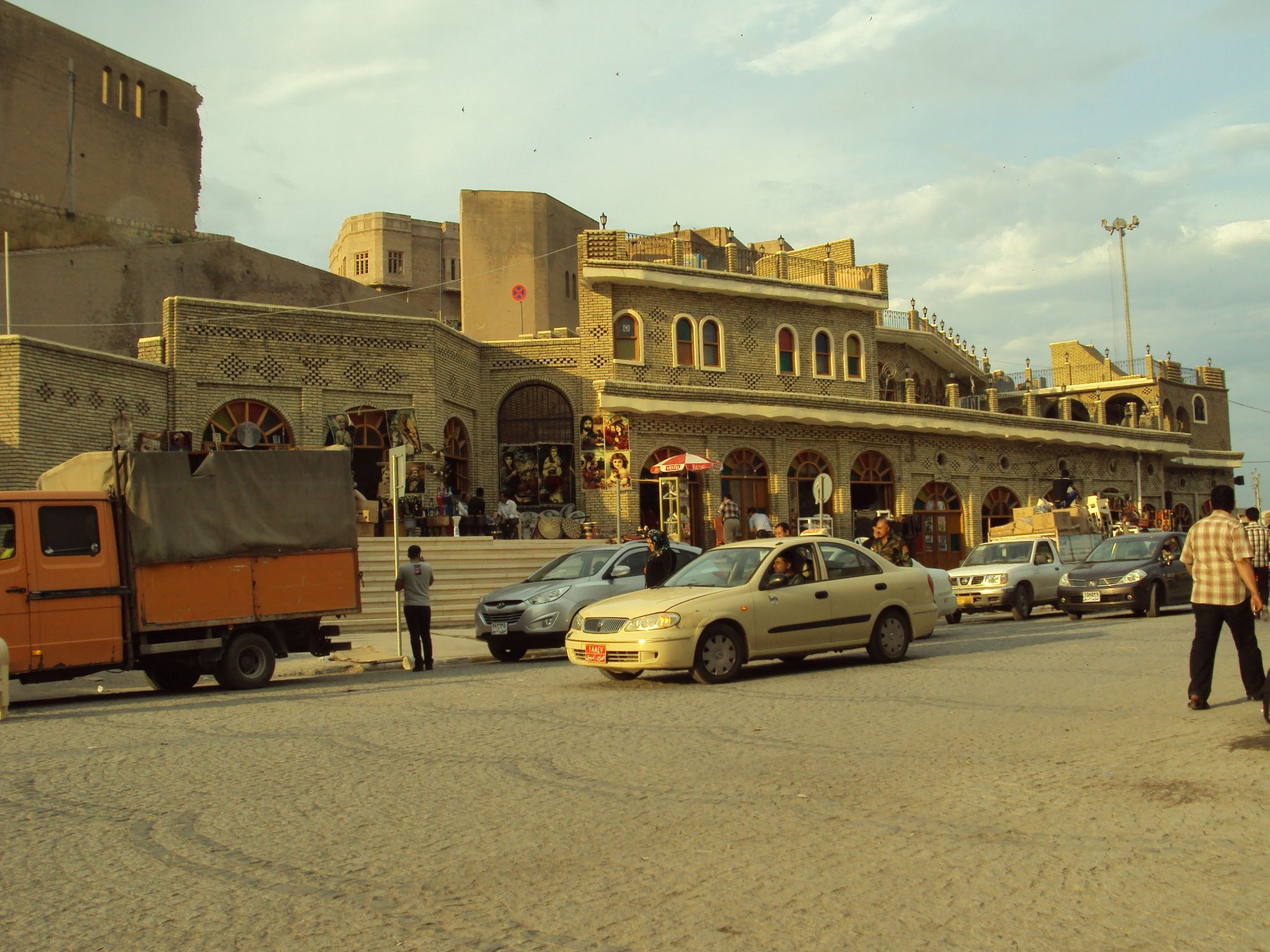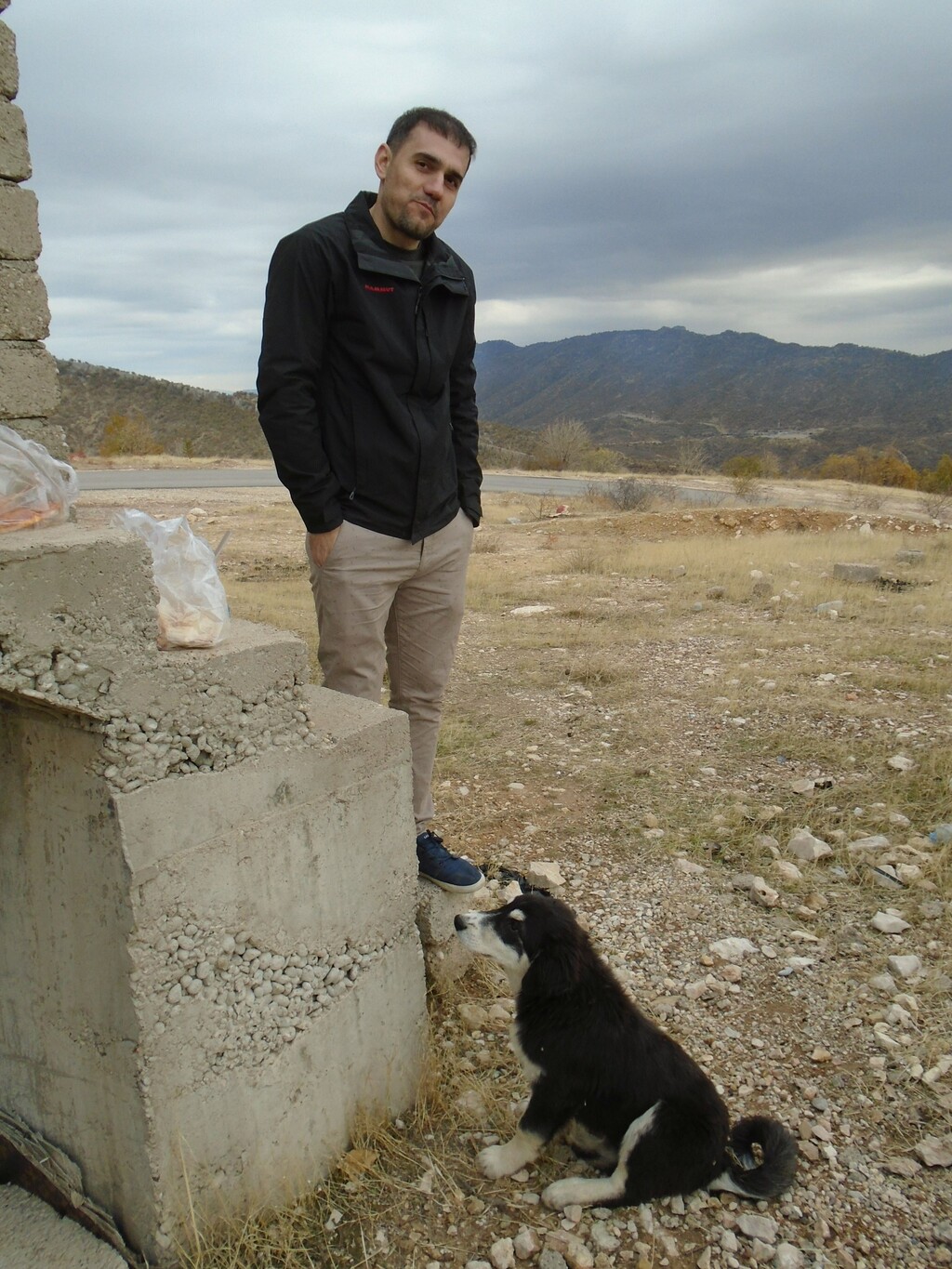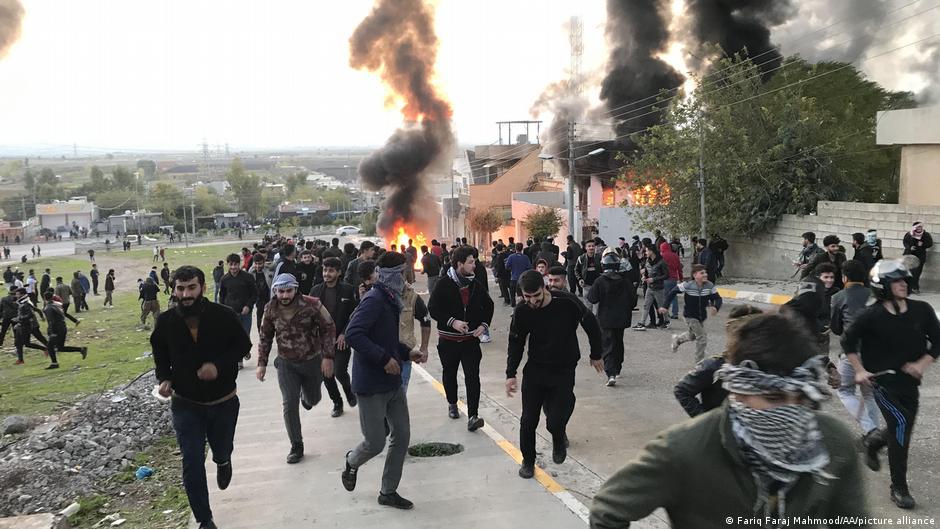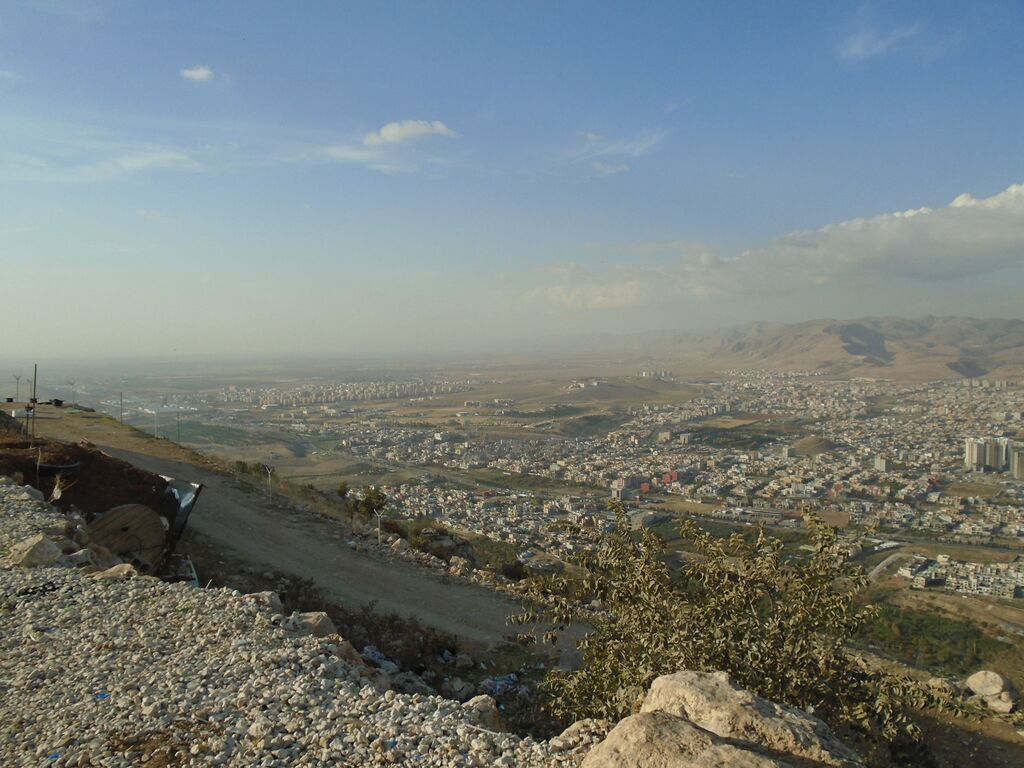Iraq's beacon shines no more

When his grey passport with his residence permit for Germany was about to expire, Bebak Dawdi stood for hours in front of the travel agency in the Kurdish-Iraqi city of Erbil with money in his hand, wondering whether he should fly back to Frankfurt straightaway. Once their papers have expired, refugees who voluntarily return to their home countries from Germany are subject to a five-year entry ban. In the end, he got into his car and drove home.
"I was in inner turmoil," says the 35-year-old Kurd. Together with his father, Bebak had decided at the end of 2004 to return from Stendhal in Saxony-Anhalt, where he grew up, to the Kurdish autonomous regions of Iraq. Saddam Hussein, the reason for his father's flight, was gone, the region was booming. New neighbourhoods were springing up like mushrooms. At the time, Iraqi-Kurdistan was recording the highest levels of direct investment in the entire region. Its political leaders were calling on all Kurds in Europe to come back to Kurdistan and help in the reconstruction. The expertise they had acquired in Western countries was in demand. They were promised start-up aid, jobs, good conditions.
Returnees like Bebak were convinced: "We can do it". And thousands came. Estimates suggest that between 2005 and 2010, up to 60,000 Kurds returned from Europe, most of them from Germany. How many returned from other countries like Canada and the USA is not documented.

The Kurdish metropolis of Erbil enjoyed unprecedented growth. Its population doubled within a few years. The centuries-old bazaar was demolished, new arcades were built, water fountains and light shows were installed and street vendors were banned from the city centre. Sulaymaniyah – Kurdistan's second largest city – and Dohuk also experienced extraordinary real estate booms: high-rise buildings, shopping malls, hotels. Everything had to be bigger and higher. New oil fields were discovered and developed.
The Kurds thought the boom would go on indefinitely. Yet they lived in an oscillating state between tradition and modernity. The gap between aspiration and reality grew wider and wider. Now the cranes are idle, the facades are crumbling, restaurants and hotels are being forced to close because they don't have enough guests. "We didn't make it," says Bebak today. More than 100 people a day are packing their bags and bidding farewell to Iraqi-Kurdistan.
For four years now, the trend has been in reverse. Thousands of Kurds are leaving Kurdistan for Europe. It may not be an exodus just yet, but if the trend in Kurds leaving the country continues, it will soon become one.
Even if more than 4,000 Kurds were recently flown back to Erbil by Iraqi Airways at state expense, this cannot hide the fact that many, very many have left Kurdistan for good and as many more still wish to leave.
From above, Dohuk looks almost idyllic. In Kurdish, the name means "small village", but it hasn't been that for a long time. Half a million people live in the basin, surrounded by mountains. Dohuk lies at an altitude of 585 metres; in summer it is swelteringly hot, in winter quite chilly.
Anyone who wants to know why so many Kurds are leaving the region should take a closer look at Dohuk, they say. Here the Barzani system becomes clear. This is where his Kurdish Democratic Party (KDP) has its stronghold.
One man is sitting in his shop in the cauldron of Dohuk, where the situation has reached boiling point. "Kurdistan is the most corrupt region in the whole area," says the businessman, who studied business management in Erbil and comes from Dohuk. Only 34 years old, with a long beard and an expensive watch dangling loosely from his left wrist, he looks more like a jaded old man who has lost his faith in the future. He sells fire extinguishers – an irony of fate?
Barzani clan brooks no competition
When the pandemic came to Dohuk, he wanted to sell face masks. But he was not allowed to, because the ruling Barzani family produces and sells them and does not allow any competition. In general, the clan dominates everything, all of life, everyday life. "When you make a deal, at least 50 percent goes into their pockets," the shop-owner knows, "otherwise they break you."
He used to be in the Barzani party, he says, wanting to make a difference. He even campaigned for the KDP, painted his car yellow in the party's colours and distributed election ads for one of their candidates. Today, he has distanced himself from all that because he has seen where it all leads. Dohuk has always been the backbone of the party, the one hundred percenters are here, those who have stood firmly by Barzani and his clan. After years of economic crisis, however, people like this retailer are increasingly turning their backs on them. "When criticism comes from Dohuk, those in Erbil become aggressive," the businessman knows. "Anyone who demonstrates here is crushed, threatened."

Iraq Kurdistan, comprising the three provinces that have gained extensive autonomy from Baghdad, is dominated by two families. These are the Talabanis in the city and province of Sulaymaniyah and the Barzanis in Erbil and Dohuk. The two clans divide everything between themselves. But while in Sulaymaniyah, in the east of Kurdistan, a political counterweight to the ruling Talabani PUK party (Patriotic Union of Kurdistan) has emerged and demonstrators are free to air their discontent, the Barzanis rule the two remaining provinces with an iron fist, suppressing anyone and everything that could threaten their power.
"Just like under Saddam Hussein", is what many in Kurdistan say. Yet the clan leader and long-time president of the autonomous Kurdish regions, Masoud Barzani, always stressed that he was committed to democracy. Heads of government and heads of state from Western countries were only too happy to hear this and travelled to Erbil to shake his hand. Times have changed, however. Masoud Barzani has abdicated, while his son and nephew are now prime minister and president of Kurdistan.
Yet nothing has improved, on the contrary. "Before we had one Barzani, now we have two," the retailer grins. Dohuk is the richest city in Iraq after Basra in the south. Business with Turkey, smuggling, drugs, customs at the border crossing up in Zakho: "There are people who have earned billions of dollars here – and they keep the autonomy government and the system alive."
Nothing but real estate and oil
In 2013, the real estate bubble in Kurdistan burst. Since the profits had been transferred abroad up to that point and not invested in the country itself, there were no reserves. The oil price collapsed for the first time. Apart from real estate and oil, however, Kurdistan did not pursue any further development. Lofty agricultural development plans ended up gathering dust in the drawers of inactive authorities, as did industrial parks. The Kurdish Regional Government, above all the then Kurdish President Masoud Barzani, picked a fight with Baghdad. Remittances from the capital – some 17 percent of the Iraqi budget – failed to materialise and oil revenues halved. The bloated public sector, which employs almost 70 percent of Kurds on the payroll and swallows 80 percent of the budget, could no longer be paid.

For months, teachers, university professors, lecturers and doctors received no money. A year later, Islamic State (IS) rolled across northern Iraq, not into the Kurdish areas, but within a whisker of them. Millions of refugees found shelter in the safe haven of Kurdistan. When IS was defeated, Barzani thought he was strong enough to strive for an independent Kurdish state and held a referendum on the issue, which returned a large majority in favour of an independent Kurdistan.
But the Kurdish leader's solo effort cost him dearly. Not only Baghdad was alarmed, but also its neighbours Turkey and Iran were massively opposed. And even Kurdistan's closest allies, the United States, distanced themselves from the idea. An armed conflict between the Iraqi army and the Kurdish pershmerga was prevented at the last minute. Then came COVID-19.
Corruption accelerates economic decline
The pandemic further accelerated an economy that was already on a downward slide. Rising prices, huge income disparities, lack of employment opportunities, lack of prospects for socio-economic mobility, loss of public sector wages, and all this for months, even years.
According to a report by the UN Development Organisation (UNDP), the average income of a household in the Kurdish region fell by a dramatic 31 percent in the last four years, while the rest of Iraq saw only a 12 percent drop. In addition to members of the public sector, women, young people, the disabled and internally displaced persons have been hit the hardest.
But Kurdish President Nizevan Barzani was photographed in Switzerland buying his son a Rolex watch. And the American political magazine "American Prospect" revealed that Prime Minister Masrur Barzani had recently bought an 18 million dollar house in Miami, the fourth building the family owns there.
Apparently this was too much: for the first time in Kurdistan's recent history, students in Erbil and Dohuk, who had previously refrained from demonstrating, took to the streets at the end of November. The security forces cracked down and fired live ammunition. The immediate issue was the reintroduction of a modest monthly stipend that the Kurdistan Regional Government used to provide for university students prior to 2014, which had not been paid since.
Bebak Dawdi has made it and is back in Germany after 18 years in Kurdistan. With a scholarship from the Konrad Adenauer Foundation, the Kurd is now studying for a master's in international relations at the University of Fulda. Whether he returns to Kurdistan depends on whether there will be any prospects by then.
© Qantara.de 2022
